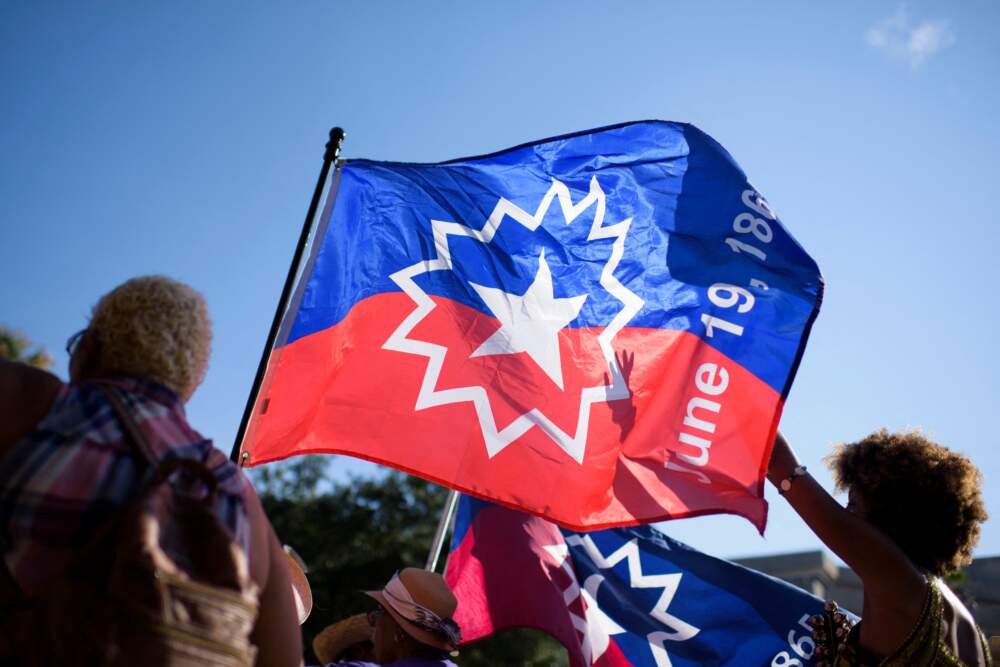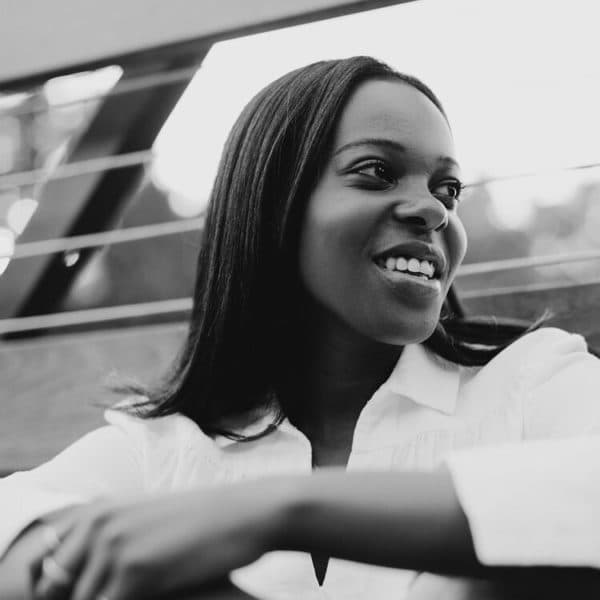Advertisement
Boston's Weekly Arts Newsletter
Slavery is not the beginning, Juneteenth is not the end

Editor's Note: This is an excerpt from WBUR's weekly arts and culture newsletter, The ARTery. If you like what you read and want it in your inbox, sign up here.
Juneteenth, a long-celebrated holiday that was recently recognized by the federal government, is this coming Monday, June 19. It commemorates the freeing of the "last-held" slaves in the nation. But instead of rehashing the history, I want to tell you a story. Or rather, a non-story. There is no straightforward beginning. There is also no ending.
I have tried to trace my family history on my father’s side for years at this point. In some seasons of my life, I’m more invested than others. I’ve spent hours looking at census material, searching public plantation records and databases of letters sent between recently freed slaves. Despite that, I’ve come up empty, usually right where I began, if not further off. But here’s what I know. My grandfather was born in 1915 in Muskogee, Oklahoma. His father was born in 1881 near Waco, Texas, on a plantation-turned-sharecropping farm. Somewhere along the line, our last name was switched from Fitzpatrick to Williams for more discretion. The name switch is like a wall, which was likely intended; I can’t find information further back than 1837. But even this is not the story's beginning because those roots — my roots — stretch beyond the U.S. shores of the Atlantic Ocean.
I am lucky to know as much as I do about my family as a descendant of slaves, but it’s hardly a linear narrative. I know that my grandmother's father found success by selling good seeds and soil to other freedmen, who, like him, still lived on the plantation. It was hard for freedmen to find good seeds, so my great-grandfather would take long drives across state lines to replenish his supply. According to how I was told, the town caught wind of his work, and the store was burned. So they fled. That event would bring two sides of my family tree to Oklahoma, so, in a way, it’s a kind of beginning. If we start in the middle, anyways.
Inside this winding tale, there is so much brutality: trafficking, displacement and long journeys on foot. There’s confusion about who was where and when — and about who owned who. While pushing my aunt for more information on the family a few years ago, she told me, “Grandma would give a little tidbit of the past from time to time, but she really didn’t have many happy memories to talk about.” So my ancestors just moved forward, the past becoming more blurred and knotted as the years went by.
Humans love stories, and I’d venture to say that Americans, especially, love a story that’s tidy. One that you can wrap up with a bow. When a story has no beginning or end, we search for them. Juneteenth is the celebration of the news of the Union’s victory over the Confederacy reaching enslaved people in Galveston, Texas. But just like slavery is not the beginning of the story, Juneteenth is not the end. There was mass chaos after the implementation of the Emancipation Proclamation. Some people went far away, some people stayed, and many people spent the rest of their lives searching for family members. It would be half a decade before freed slaves were considered citizens and nearly a century before Black people were promised equality under the law (although we know that’s not the end of the story either).
Juneteenth is a special day of observance, but it’s not the end of the story. It's important to celebrate with clarity, curiosity and an openness to a complicated and violent history.
Sign up for The ARTery: Boston's Weekly Arts & Culture Newsletter
